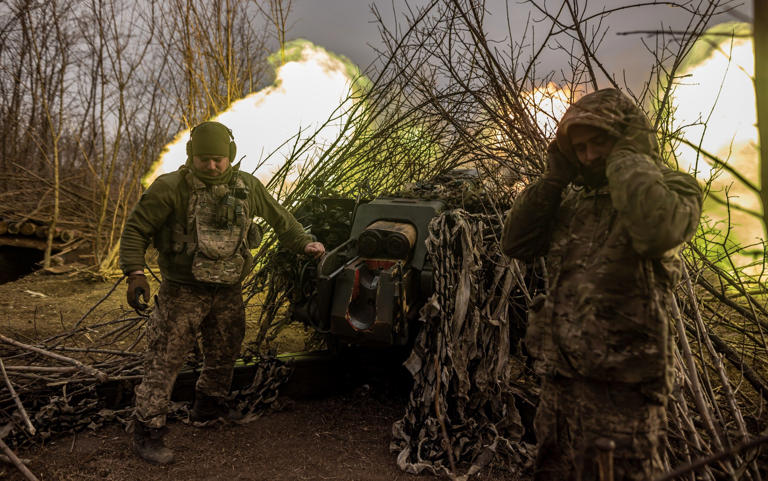NATO Intervention in Ukraine: A Critical Analysis
Explore the potential implications of NATO intervention in Ukraine amidst escalating tensions with Russia. Understand the geopolitical dynamics and the risks involved in this significant move.

© Getty
NATO Intervention Ukraine
In recent developments, the possibility of NATO intervention in Ukraine has become a topic of intense discussion. This move comes amidst escalating tensions with Russia and the ongoing conflict in the region. Let’s delve into the potential implications and risks associated with such intervention.
Understanding the Context
The conflict between Ukraine and Russia has been ongoing for years, with Russia annexing Crimea in 2014 and supporting separatist movements in eastern Ukraine. The situation has remained volatile, with sporadic outbreaks of violence and diplomatic efforts to find a resolution.
French Readiness and NATO’s Role
Recently, General Pierre Schill of France’s ground forces chief suggested that a NATO ally is prepared to deploy up to 60,000 troops to Ukraine. This indicates a significant escalation in the conflict and underscores the seriousness with which some NATO members view the situation.
Assessing the Implications
NATO intervention in Ukraine would undoubtedly have far-reaching implications. It could deter further Russian aggression and provide much-needed support to Ukraine’s defense efforts. However, it also risks escalating the conflict and drawing NATO into direct confrontation with Russia.
Division Within NATO
While some NATO members, including Estonia, Lithuania, Latvia, and Poland, express willingness to support Ukraine, others, notably the US and Germany, oppose such actions. This division underscores the complex dynamics within the alliance and the challenges of reaching consensus on sensitive geopolitical issues.
© Getty
Russian Response and Escalation Risks
Russia has consistently warned against NATO involvement in Ukraine, threatening retaliation and significant escalation in the conflict. The possibility of targeting foreign troops in Ukraine raises concerns about the potential for a wider military confrontation in the region.
Diplomatic Efforts and Alternative Solutions
Despite the rhetoric surrounding potential troop deployments, there are no concrete plans yet for NATO intervention in Ukraine. Diplomatic efforts, including discussions proposed by French President Emmanuel Macron, may seek to find alternative ways to support Ukraine, such as through training and advisory roles.
The Human Cost
Amidst the geopolitical maneuvering and military posturing, it’s essential not to lose sight of the human cost of the conflict. The people of Ukraine have borne the brunt of the violence and instability, facing displacement, economic hardship, and loss of life.
The Need for Caution
While NATO intervention may seem like a decisive move, caution is warranted. Any escalation in the conflict could have catastrophic consequences for the region and beyond. It’s crucial for all parties involved to exercise restraint and prioritize diplomatic solutions.
Conclusion
The prospect of NATO intervention in Ukraine presents both opportunities and risks. While it could provide much-needed support to Ukraine and deter further Russian aggression, it also risks escalating the conflict and drawing NATO into direct confrontation with Russia. Diplomatic efforts and alternative solutions must be explored to address the root causes of the conflict and ensure the long-term stability of the region.
ALSO READ:
http://“Nuclear Conflict Simulation: 5 Shocking Targets Revealed! Obliteration Guaranteed”